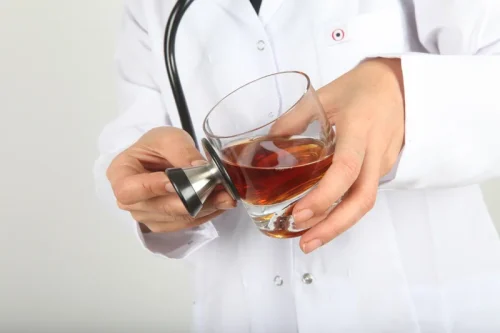
We are active from the local to the state level, continuously advocating mash sober houses for the rights of sober home residents and operators. Join our sober living community or refer a client, family member, or friend. The National Alliance for Recovery Residences (NARR) is a nonprofit organization that promotes quality standards for recovery housing across the United States.
» Steps to Certification
As we say often at MASH, “Home is not a place. It is a feeling.” Our certified sober homes take pride in offering a home-like environment that supports recovery. Certified sober homes alcoholism symptoms have comfortable spaces for living, sleeping, alcohol rehab and engaging with peers, all of which make them valuable and safe spaces for recovery. It is a feeling.” Our certified sober homes take pride in offering a home-like environment that supports recovery. Vanderburgh Sober Living (VSL) is a network of independently operated sober homes organized and supported by The Vanderburgh Foundation, a registered 501(c)3 Charitable Foundation.
- In 2023, the significance of the Massachusetts NARR affiliate has grown due to increasing demand for structured sober living environments amid the ongoing opioid crisis.
- NARR plays a pivotal role in shaping recovery housing across the United States by setting the national standards that affiliates like MASH implement.
- Documentation that emergency contact information is collected from residents.19.c.
- Transition (e.g. entry, phase movement and exit) rituals promote residents’ sense of belonging and confer progressive status and increasing opportunities within the recovery living environment and community.
- MASH updates and replaces NCHRP Report 350.
- In Methuen, a husband-wife team was harassed by the city with several lengthy requests for code-related information and inspections.
Effects on Providers
In 2011, the National Alliance for Recovery Residences (NARR) established national standards for recovery residences (including sober housing). These standards were developed using a collaborative approach with input from regional and national recovery housing organizations. MASH is an affiliate of NARR and used these standards to create Massachusetts standards for certified sober homes.
Step-by-Step Guide for Affiliates
- These homes provide residents with peer support, structure, and accountability—key factors in preventing relapse and promoting sustained recovery.
- Effective September 1, 2016, state agencies and their vendors shall only be able to refer clients to certified alcohol and drug free (ADF) housing.
- MASH is dedicated to promoting the health, safety, and well-being of residents through rigorous certification standards that align with the National Alliance for Recovery Residences.
- Verification that kitchen and dining area(s) are large enough to accommodate all residents sharing meals together.
An increase in beds will require an additional inspection to the sober home. Residents are linked to mutual aid, recovery activities and recovery advocacy opportunities. Community gatherings, recreational events and/or other social activities occur periodically. Policies and procedures that serve the priority population, which at a minimum include persons mash certified sober homes in recovery fromsubstance use but may also include other demographic criteria. Prior to the initial acceptance of any funds, the operator must inform applicants of all fees and charges for which they will be, or could potentially be, responsible. This information needsto be in writing and signed by the applicant.

Best Practices for Massachusetts NARR State Affiliate

Policies and procedures for ongoing performance development of staff appropriate to staff roles and residencelevel. Evidence that residents’ recovery progress and challenges are recognized and strengths are celebrated. Evidence that residents have opportunities to be heard in the governance of the residence; however, decision making remains with the operator. Policies and procedures that keep residents’ records secure, with access limited to authorized staff. Today, we’ll take a deep dive into everything you need to know about opening your sober living home in Massachusetts.
Massachusetts NARR State Affiliate

Healthcare providers benefit from referring patients to MASH-certified homes because these facilities adhere to national standards that promote patient safety and well-being. Providers can be confident that patients will receive continued support post-treatment. MASH-certified homes play an integral role in the continuum of care by offering a bridge between clinical treatment settings and independent living. These homes provide residents with peer support, structure, and accountability—key factors in preventing relapse and promoting sustained recovery. Beware NIMBY resistance to sober living homes in Massachusetts. In Methuen, a husband-wife team was harassed by the city with several lengthy requests for code-related information and inspections.
- Documentation that residents are oriented to emergency procedures.19.d.
- Verification that a meeting space is large enough to accommodate all residents.15.b.
- The third version of the NARR standards provides more explicit guidance to providers, including metrics for evaluating the peer support components of a residence’s recovery environment.
- A policy and practice documenting that a resident is fully informed regarding refund policies prior to the individual entering into a binding agreement.3.d.
- An increase in beds will require an additional inspection to the sober home.
MASH Manual for Assessing Safety Hardware

Verification that written resident’s rights and requirements (e.g. residence rules and grievance process) are posted or otherwise available in common areas. MASH updates and replaces NCHRP Report 350. Products addressed in MASH include longitudinal barriers, transitions, end terminals, crash cushions, breakaway supports, truck mounted attenuators, and work zone traffic control devices. The crash performance is judged on structural adequacy, occupant risk, and vehicle trajectory. 29.e Documentation that resident and staff engage in community relations and interactions to promote kinship with other recovery communities and goodwill for recovery services.
